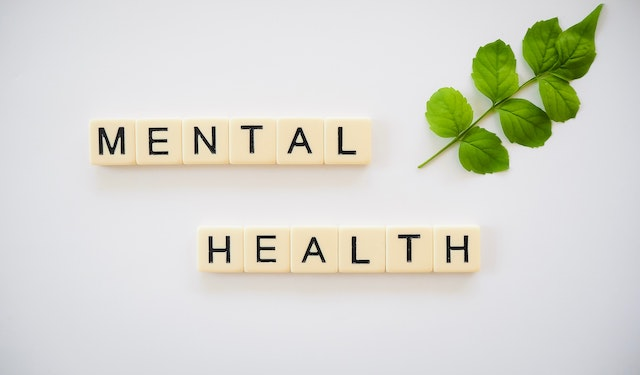
Trauma and Stress: Understanding Their Impact on Mental Health
Trauma and stress are significant contributors to mental health challenges worldwide. These conditions stem from life-altering experiences and persistent stressors, often leaving a lasting impact on emotional and physical well-being. Understanding trauma and stress is essential for fostering resilience and recovery.
What is Trauma?
Trauma is an emotional response to deeply distressing or disturbing events. It can result from:
- Acute Trauma: A single, intense event like a natural disaster, accident, or assault.
- Chronic Trauma: Repeated and prolonged exposure to harmful situations, such as abuse or neglect.
- Complex Trauma: Multiple traumatic events that are often interpersonal in nature.
What is Stress?
Stress refers to the body’s natural response to challenges or demands. It can be:
- Acute Stress: A short-term reaction to immediate threats or pressures.
- Chronic Stress: Persistent stress over an extended period, often linked to work, relationships, or financial issues.
Common Signs and Symptoms
Emotional Symptoms:
- Persistent feelings of fear, anger, or sadness.
- Irritability or emotional numbness.
- Anxiety or depression.
Physical Symptoms:
- Fatigue and sleep disturbances.
- Headaches, muscle tension, or stomach issues.
- Increased heart rate and blood pressure.
Behavioral Symptoms:
- Avoidance of reminders of the traumatic event.
- Difficulty concentrating or decision-making.
- Substance abuse or risky behaviors.
Impact on Mental Health
Both trauma and stress can lead to serious mental health disorders, including:
- Post-Traumatic Stress Disorder (PTSD): Persistent, severe reactions to traumatic events.
- Acute Stress Disorder: Short-term distress following a traumatic event.
- Adjustment Disorders: Difficulty coping with life changes or stressors.
- Anxiety and Depression: Common responses to prolonged stress or trauma.
Causes of Trauma and Stress
- Trauma: Accidents, abuse, violence, natural disasters, or loss of a loved one.
- Stress: Work pressure, relationship conflicts, financial strain, or health problems.
Effective Treatment Options
1. Psychotherapy:
- Trauma-Focused Cognitive Behavioral Therapy (TF-CBT): Tailored for trauma survivors to process memories and reduce distress.
- Eye Movement Desensitization and Reprocessing (EMDR): Helps reframe traumatic memories through guided eye movements.
- Dialectical Behavioral Therapy (DBT): Useful for managing emotions and building coping skills.
2. Medications:
- Antidepressants (e.g., SSRIs) for depression and anxiety.
- Beta-blockers to manage physical symptoms of stress.
3. Lifestyle Modifications:
- Regular exercise to alleviate stress and improve mood.
- Mindfulness meditation and relaxation techniques.
- Adequate sleep and a balanced diet.
4. Support Groups:
- Connecting with others who have experienced similar challenges.
Coping Strategies for Trauma and Stress
- Build a Support Network: Reach out to friends, family, or professionals.
- Practice Self-Care: Engage in activities that promote well-being.
- Develop Healthy Routines: Prioritize sleep, nutrition, and physical activity.
- Limit Triggers: Identify and reduce exposure to stressors where possible.
- Seek Professional Help: Don’t hesitate to consult a therapist or counselor.
How Trauma and Stress Affect the Brain
- Amygdala: Overactivation can lead to heightened fear and anxiety.
- Hippocampus: Impaired functioning affects memory and learning.
- Prefrontal Cortex: Reduced activity impacts decision-making and emotional regulation.
FAQs About Trauma and Stress
1. Can trauma and stress lead to physical health problems? Yes, they can cause cardiovascular issues, weakened immunity, and chronic pain.
2. How can I support someone dealing with trauma or stress? Offer empathy, encourage professional help, and provide a safe, non-judgmental space to talk.
3. Are children affected differently by trauma? Children may show behavioral changes, regression, or difficulty in school due to trauma.
4. What are common triggers for PTSD? Triggers include reminders of the traumatic event, such as sounds, smells, or specific locations.
5. How long does it take to recover from trauma or stress? Recovery varies based on individual factors, the severity of the experience, and the type of treatment.
Online Resources for Help
- National Center for PTSD: Expert resources for PTSD and trauma.
- American Psychological Association (APA): Tools for managing stress and trauma.
- Mental Health America (MHA): Comprehensive mental health resources.
- Trauma Recovery Network: Information on EMDR and trauma recovery.
Conclusion
Trauma and stress are universal experiences, but their effects vary widely. Recognizing the symptoms and seeking help is crucial for healing. By utilizing professional treatments, lifestyle changes, and support networks, individuals can build resilience and recover from their experiences. Raising awareness and reducing stigma around these issues is vital for creating a healthier, more supportive society.



